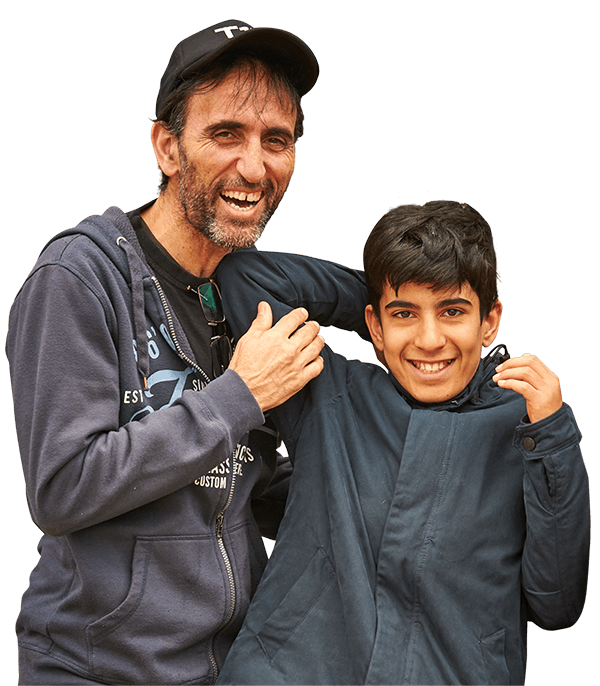
Medical Care and Therapies
Find out more
Tweens transitioning into adolescence need what they have always needed from their parents – your love, your support, your encouragement, your nurture, acceptance and attention.
Teenagers with Prader-Willi Syndrome (PWS) still need their parents to be in the lead, pulling them along, directing their steps and making important decisions for them. It’s around this time that they begin to notice those around them, start to change in appearance, access to money social outing and learning to drive a car.
The stages of actual puberty in girls and boys with PWS can begin at a typical age of onset or later. Although the pre-pubertal development is often premature, the early stages of true puberty are mostly experienced normally. The average age is around ten to thirteen years.
In pubescent teenage girls, menstruation is often delayed, infrequent with spotting or more commonly with girls with PWS, does not begin at all. With boys, the penis and testes often do not develop fully. Sex hormone therapies can treat incomplete pubertal development at the appropriate time as puberty is vital for bone strength. Osteoporosis is common in those who have not experienced puberty going into adulthood. Hormone therapies are monitored carefully by Endocrinologists in case of a rise in aggression, depression and other behavioural issues.
Although the fertility of people with PWS is affected to such a degree that reproduction is rare, Sex education and safety are vital as healthy and ongoing relationships are not governed by sexual development.
Also, around this time, if not already experienced, you may notice your child’s preoccupation with food has now become obsessive and their constant need for food has become uncontrollable.
The International Prader-Willi Syndrome Organisation (IPSOW) provides information on their website to help us understand the hunger drive in people with PWS. Their website states the following:
“To understand the importance of this hunger drive, try to look at Prader-Willi Syndrome as a ‘starvation’ syndrome rather than an over-eating one. Because of the dysfunction in the hypothalamus, there is no on/off mechanism that tells the brain, “I’ve eaten enough”. What happens instead is that the brain keeps telling the stomach, “you’re starving, you need food”, and the drive to find food overrides everything else”
International Prader-Willi Syndrome Organisation
Many of the Challenging behaviours associated with Prader-Willi Syndrome are anxiety-related, therefore if you can reduce or eliminate the cause of the anxiety, you may reduce or eliminate the unwanted behaviour. Clear, concise and consistent communication is essential for management of PWS. It is necessary to communicate any changes of routine to the person with PWS as soon as possible. This will avoid any disappointment, which could lead to anxiety or unwanted behaviour.
It is hard to imagine feeling like this constantly while trying to live a life that is full and inclusive. To be able to face this constant challenge, amongst the many others that your child lives with, means that your child is incredibly resilient to the point that some would say they are Extraordinary.
Although teenagers with Prader-Willi Syndrome want ‘helpful attention‘ rather than ‘protective attention‘, it is essential to remember that they will always need your guidance, support and care.
Always remembers that you have access to supports and services that can assist you throughout all stages of your child’s life. At this time, your energy should be focused on providing a loving, caring and a safe environment, so that your child is provided with every opportunity to live a full and inclusive life.
